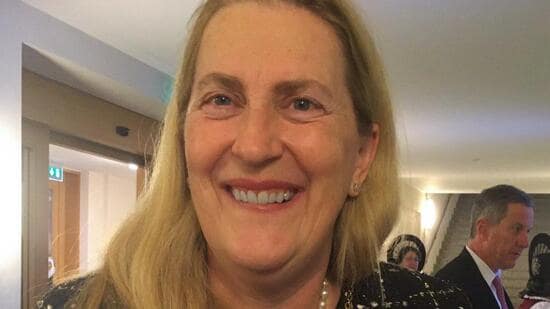NEW DELHI: With India and the European Free Trade Association (EFTA) agreeing to resume talks on a trade deal, the four members of the grouping are committed to solving outstanding issues for the speedy conclusion of negotiations, Swiss state secretary for economic affairs Helene Budliger Artieda has said.
Artieda, who visited India last week with counterparts from Iceland, Liechtenstein and Norway for talks with commerce minister Piyush Goyal, said in an interview that there are a number of issues that need to be solved, especially with regard to market access for services, intellectual property rights, and rules of origin, in order to conclude the proposed trade and economic partnership agreement. Edited excerpts:
Why is there renewed interest among the European Free Trade Association (EFTA) states in negotiating a trade and economic partnership agreement with India?
We have been negotiating for a long time and the interest has always been there! India is an important trading partner for Switzerland, and we are committed to solving the outstanding issues and to bring these negotiations to a successful conclusion as soon as possible. Switzerland and the other EFTA states are in turn, interesting markets for India and represent an untapped potential for smart investments. The four EFTA member states are global innovation, technology and quality leaders, create meaningful jobs in India, and are willing to bank on India’s impressive path towards more participation in global value chains. There is a lot of potential to further develop trade and economic relations as well as new investment opportunities.
What are the possible hurdles or impediments in finalising a trade deal and what are the areas of convergence between the two sides?
There is a shared will and commitment to tackle the outstanding issues and to bring these negotiations to a successful conclusion. Of course, there are a number of issues that still need to be solved, especially with regard to market access to services, intellectual property rights and rules of origin. But we can build upon existing work. In many areas, we have complementary markets and I am optimistic that we can find solutions which are beneficial for both sides.
How important will green and sustainable trade and development and ESG (environmental, social and governance) be in finalising any trade deal with India?
Including provisions on trade and sustainable development has gained a lot in importance in the past few years. Not only in the EFTA states, but worldwide. Nowadays, there is practically no comprehensive trade agreement which does not include commitments in this area. It is, therefore, also in this agreement important that we include labour and environmental provisions.
Will a migration and mobility partnership (MMP) be part of any trade deal?
Negotiations on an MMP are currently ongoing bilaterally between Switzerland and India. Although Switzerland sees this in the context of the trade agreement, the negotiations are conducted separately. The main reason for that is that such a partnership touches upon issues that go beyond the scope of a trade agreement.
Do you foresee difficulties in issues such as market access, especially for dairy and agricultural products?
Market access for agricultural products is a challenge in all free trade negotiations. It will be important to find solutions that grant concessions for the most important export products of all concerned parties, while taking into account respective sensitivities. I am convinced that we will also be able to find acceptable solutions in this area which allow for a meaningful outcome.

